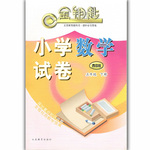题目内容
______ the sight was impressive on the top of the mountain, I made an effort to climb onto it.
A. To know B. Know
C. Known D. Knowing
练习册系列答案
 金钥匙试卷系列答案
金钥匙试卷系列答案
相关题目
题目内容
______ the sight was impressive on the top of the mountain, I made an effort to climb onto it.
A. To know B. Know
C. Known D. Knowing
 金钥匙试卷系列答案
金钥匙试卷系列答案